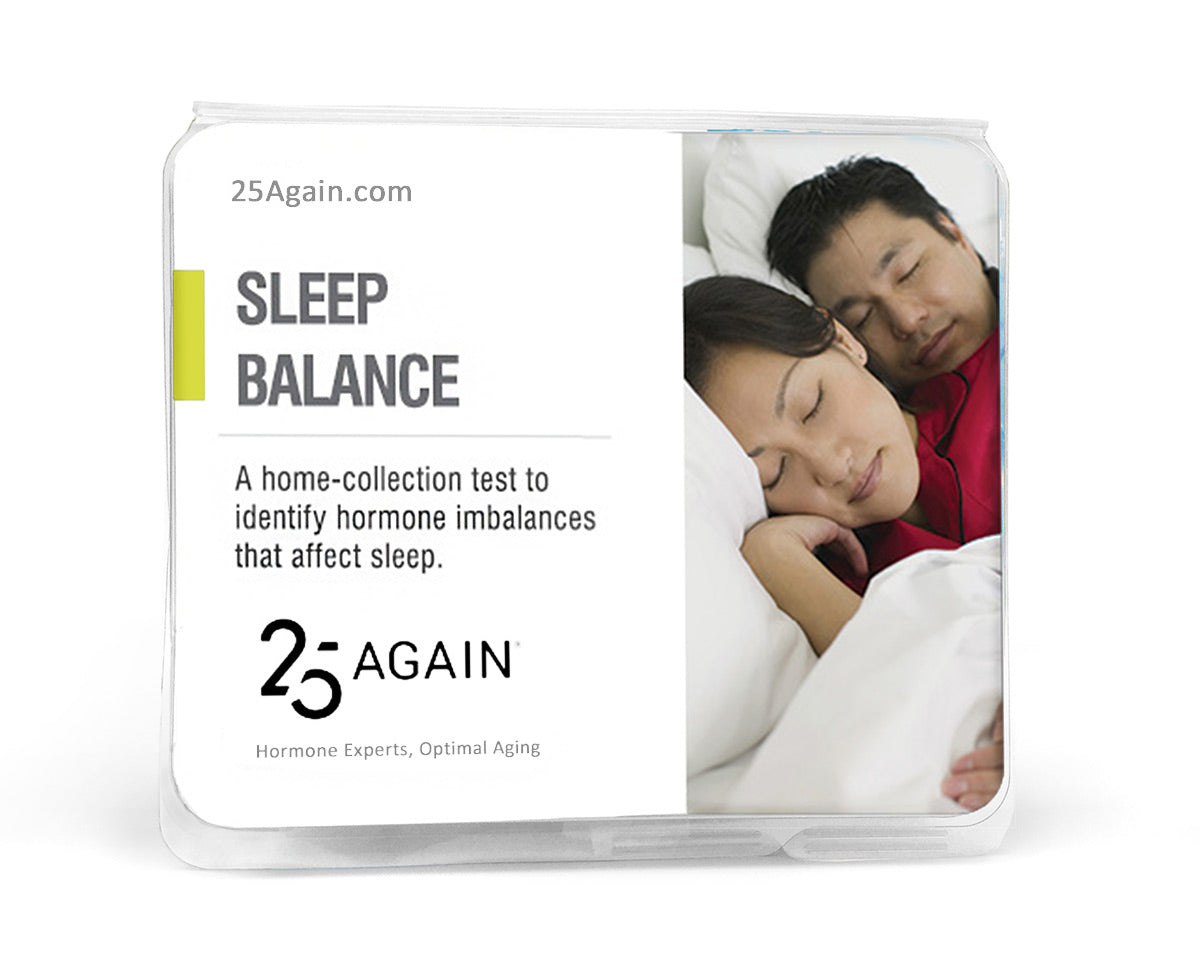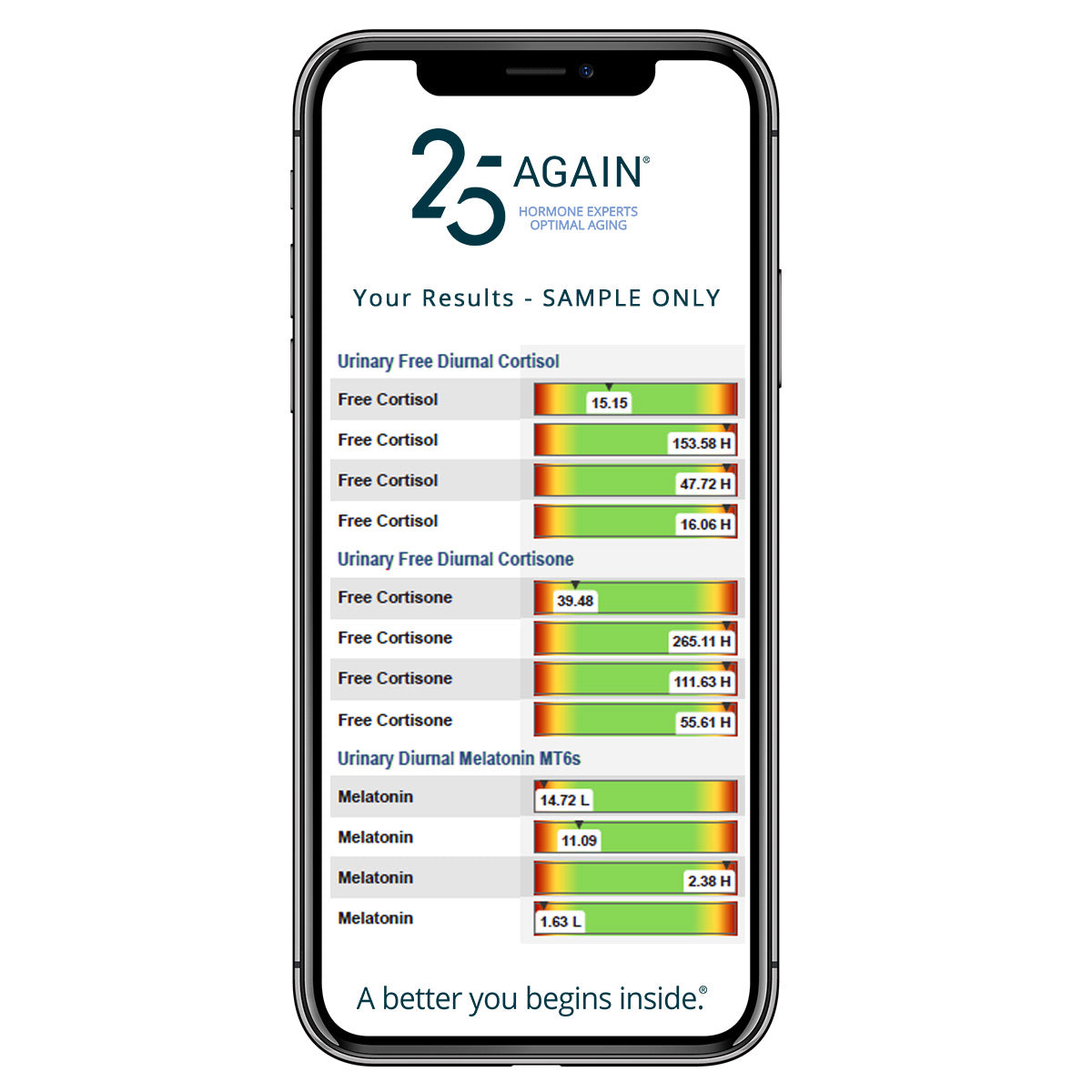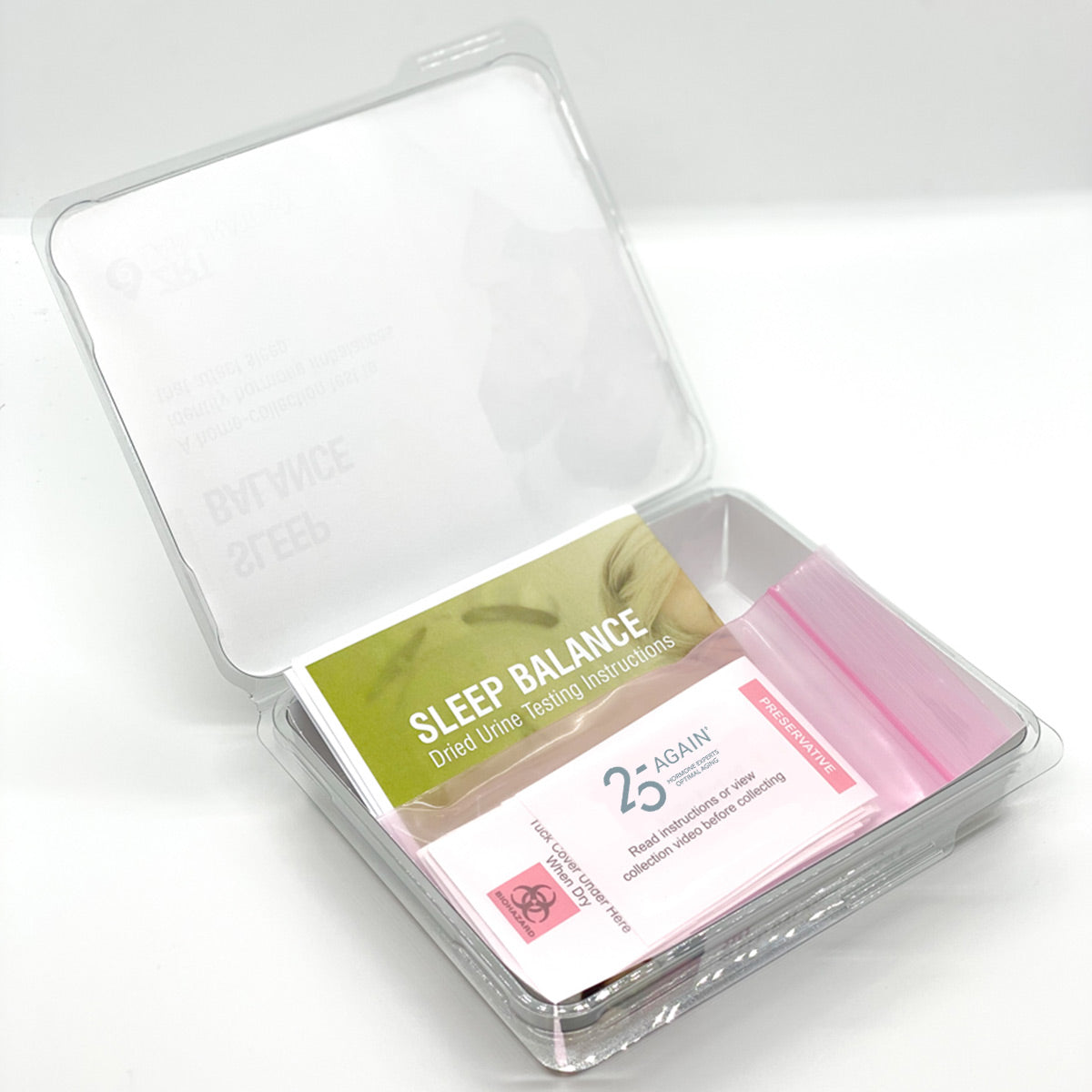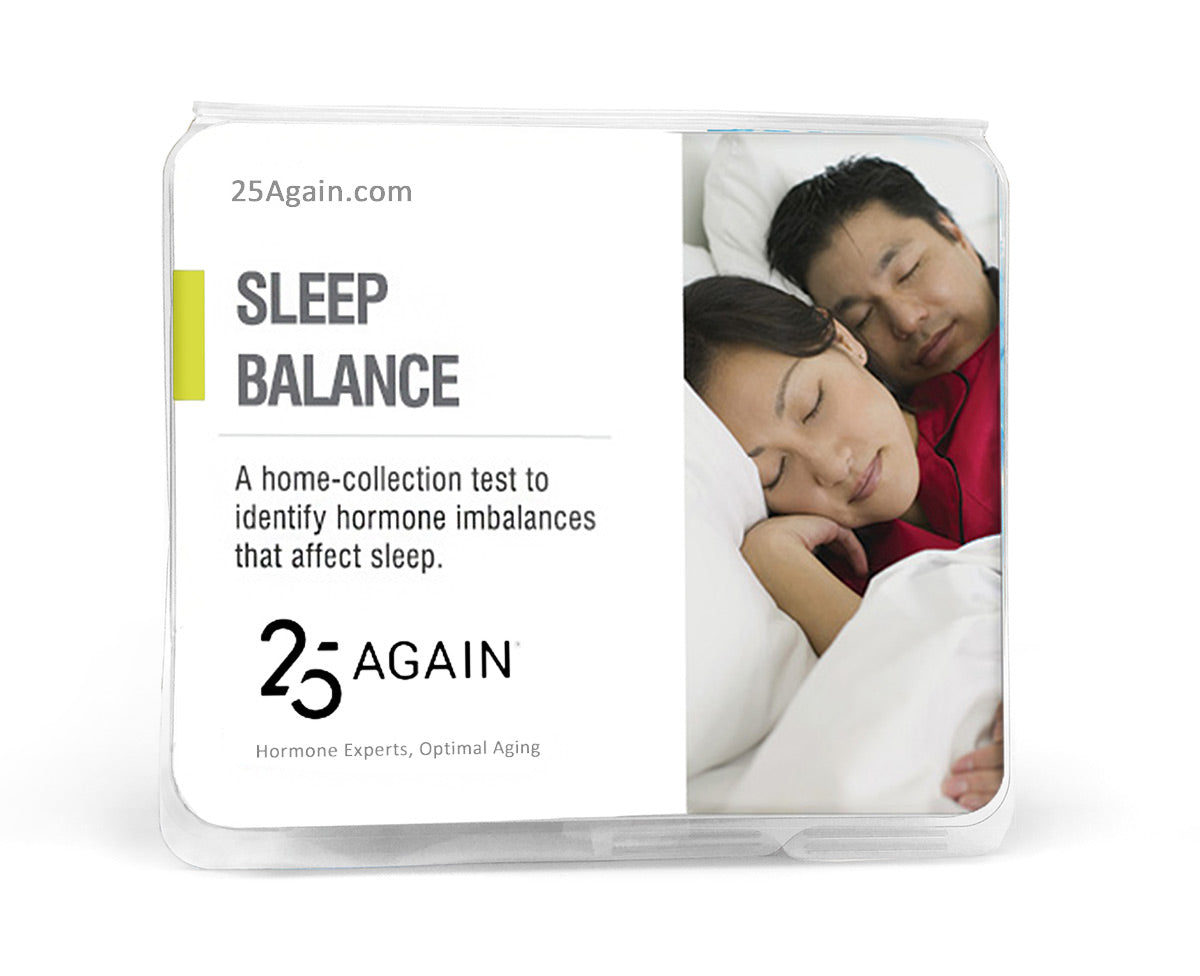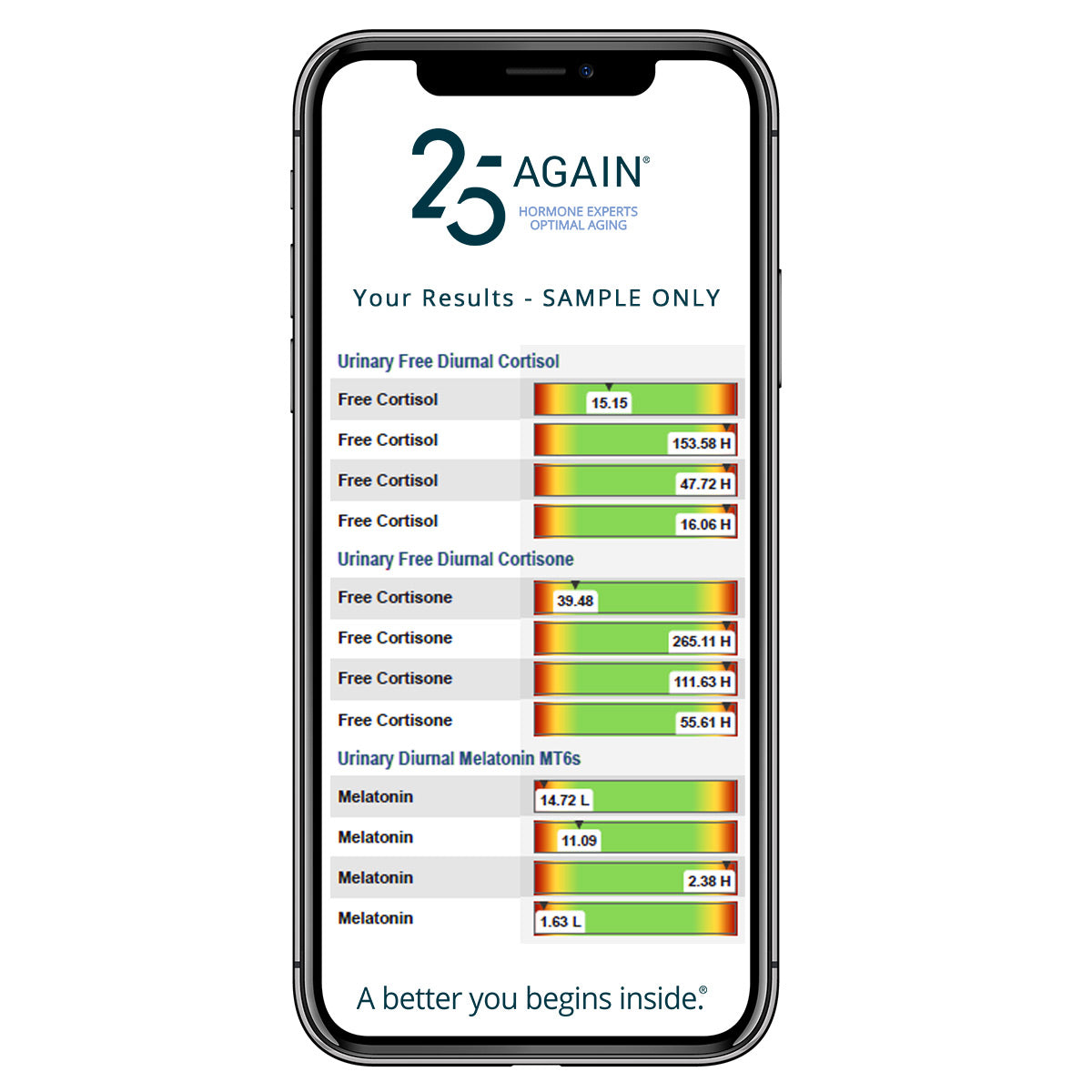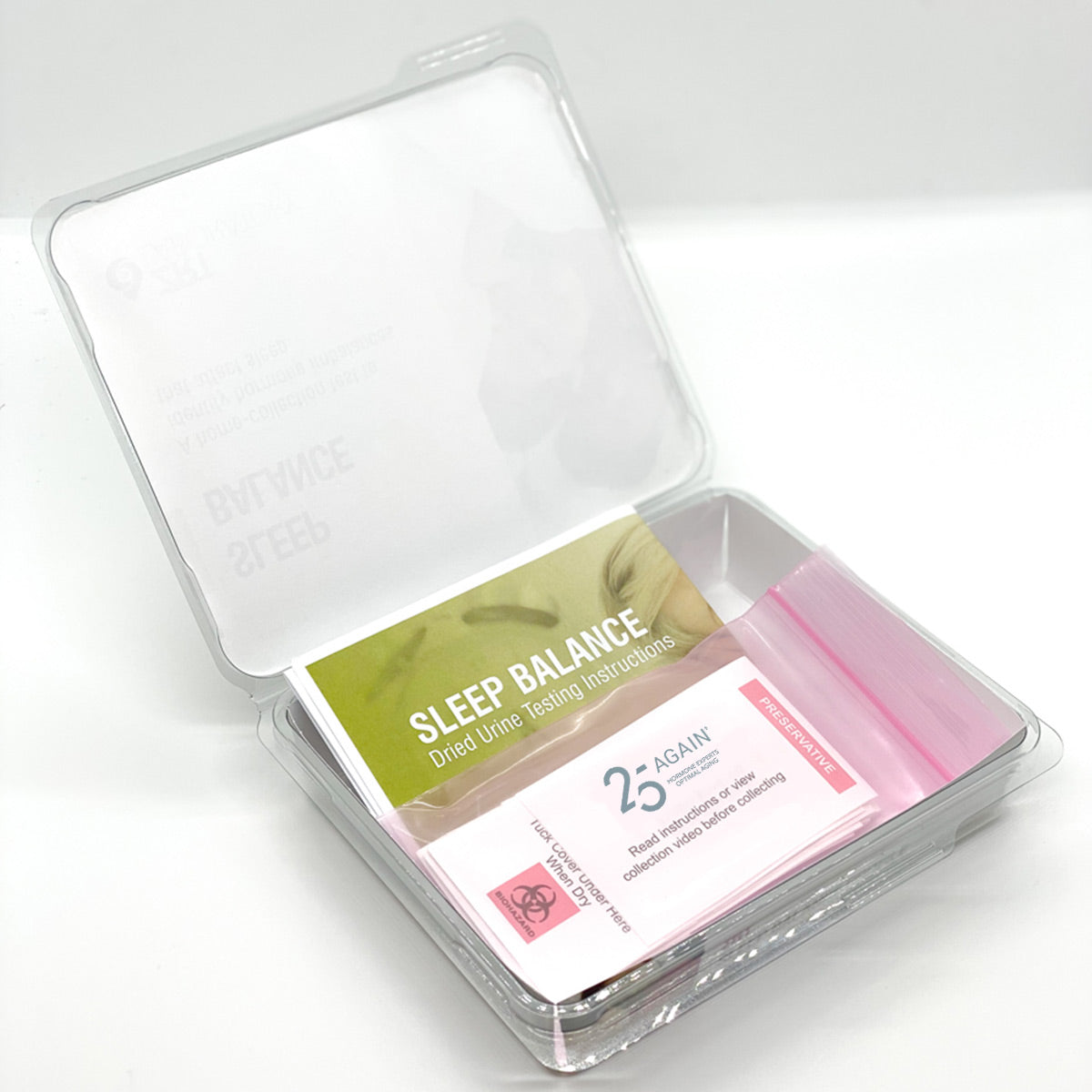1
/
of
4
25 Again
Sleep Balance Test
Sleep Balance Test
Regular price
$219.00
Regular price
Sale price
$219.00
Unit price
/
per
Shipping calculated at checkout.
Couldn't load pickup availability
According to the Department of Health and Human Services, over a third of U.S. adults report daytime sleepiness so severe it interferes with work, decision making and social functioning.
In fact, depression, obesity and diabetes are just three of the long term consequences of sleep deprivation – defined as six or fewer hours per night.
Common hormone-related causes of sleep loss often involve the following scenarios:
High Cortisol
Results in insomnia, anxiety, sugar cravings, feeling tired but wired & increased belly fat.
Results in insomnia, anxiety, sugar cravings, feeling tired but wired & increased belly fat.
Low Melatonin
Results in excessive fatigue, depression, anxiety & insomnia.
Results in excessive fatigue, depression, anxiety & insomnia.
Neurotransmitter Imbalance
Changes in sex steroid hormone levels during menopause can impact neurotransmitter levels, leading to recurring sleep issues.
Share
